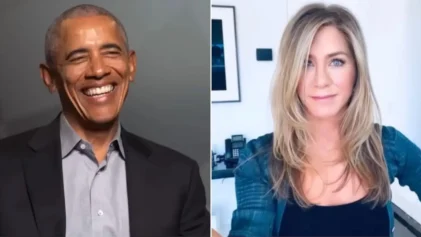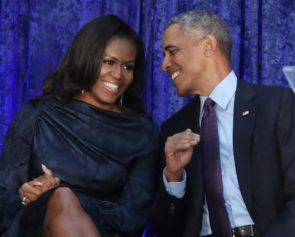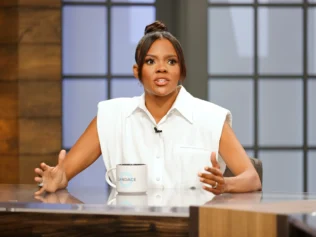Climate change will have to take a back seat to efforts to the economy in the near term, but the issue will return to the agenda in the future, President Barack Obama said Wednesday.
The president, who won an endorsement from New York Mayor Michael Bloomberg late in the presidential campaign because of his support for action on greenhouse gases, said his top priority would be to work to avert the “fiscal cliff” that threatens the economic well-being of almost all Americans.
His comments appeared to thwart hopes from environmental advocates that the White House uses the president’s re-election as an impetus to push for inclusion of a carbon tax in a broader package to address the “fiscal cliff.” Administration officials have previously said that it’s up to Republicans to propose a carbon tax, which is unlikely.
“I am a firm believer that climate change is real, that it is impacted by human behavior and carbon emissions,” Obama said during his first news conference since being re-elected. “As a consequence, I think we’ve got an obligation to future generations to do something about it.”
After treading carefully around the issue during the campaign, his comments drew cautious praise from green groups, even as the president steered clear of making specific proposals to deal with the emissions that come largely from burning fossil fuels.
“You can expect that you’ll hear more from me in the coming months and years about how we can shape an agenda that garners bipartisan support and helps move this agenda forward,” Obama said.
His comments appeared to thwart hopes by environmentalists such as former Vice-President Al Gore, who hoped the president would tackle the climate change issue head-on to start his second term.
“I think all who look at these circumstances should agree that President Obama does have a mandate, should he choose to use it, to act boldly to solve the climate crisis, to begin solving it,” Gore said in a phone interview with The Guardian. “He has the mandate. He has the opportunity, and he has the inherent ability to provide the leadership needed. I really hope that he will, and I will respectfully ask him to do exactly that.”
Gore’s endorsement of a carbon tax comes at a critical time, with less than 50 days left for Congress to work out a budget deal and avoid triggering a set of automatic tax increases and spending cuts.
A number of conservatives had also raised the possibility of a carbon tax – even before Obama’s re-election – giving hope to environmental campaigners.
Obama, however, pointed to the wide divide over legislation to address climate change. He stressed that any legislation to address climate change would have to also improve the struggling economy.
The president said he planned to meet with scientists, engineers and lawmakers “to find what more can we do to make short-term progress in reducing carbon emissions.” And in the long term, he called for a “discussion across the country about what realistically can we do to make sure that this is not something that we are passing on to future generations,” adding that the effects of climate change are “going to be very expensive, very painful.”
Obama was careful not to blame Hurricane Sandy directly on climate change, while underscoring the broader effects of increased greenhouse gas emissions.
“We can’t attribute any particular weather event to climate change,” he said. “What we do know is the temperature around the globe is increasing faster than was predicted even 10 years ago. We do know that the Arctic ice cap is melting faster than was predicted even five years ago. We do know that there are an extraordinarily large number of severe weather events here in North America but also around the globe.”
ClimateSilence.org welcomed Obama’s remarks but said putting climate change behind the push to avert the “fiscal cliff” was an “insult” to those already suffering from its effects.


